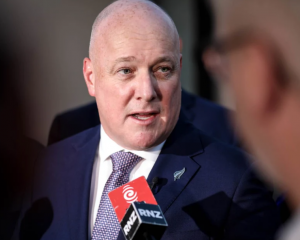MPs should stop treating votes on alcohol issues as conscience matters, Law Commission president Sir Geoffrey Palmer says.
The call comes as MPs consider a government bill that will crackdown on the sale of liquor at corner stores and give local councils greater powers over when, where and how alcohol can be sold. At the same time the commission has been tasked with a comprehensive review of the laws and regulations around the sale of liquor.
MPs traditionally treat votes on alcohol as a matter of conscience - meaning they don't have to follow a party line - but Sir Geoffrey today said it was time that changed.
"One problem with liquor is that it is always the subject of a conscience vote in Parliament.
"This does not help. Indeed it is hard to see why liquor should be the subject of a conscience vote. The fact that it always has been in hardly a good reason."
The tradition seemed rooted in the debate around abolition which was so divisive political parties found it hard to agree a position within their own ranks.
But he said times had changed and the issue should be reconsidered.
"It there were not a conscience vote, it would certainly assist in securing a coherent, consistent and rational framework for dealing with a substance that imposes significant social costs on New Zealand," he said today in speech notes for delivery to an Auckland law conference.
The Sale and Supply of Liquor and Liquor Enforcement Bill, which was tabled just over a week ago by Associate Justice Minister Lianne Dalziel, will be dealt with as a conscience issue.
As well as limiting the kind of store where alcohol can be sold to those over 150sqm, it tightens the rules around supplying alcohol to young people.
Ms Dalziel said she was confident the bill would get through its first hurdle and be sent to a select committee before Parliament is dissolved for the election.
The bill and review follow concerns about a proliferation of small liquor stores and the sale of alcohol in dairies, which Ms Dalziel said was not in line with what Parliament intended in 1989.












